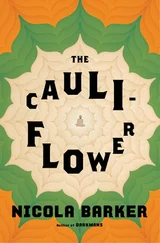Felicity shrugged, ‘It was nothing. Now clear up your face. Here’s a tissue. A bit of spit and polish should do the job.’
Selina took the proffered tissue and applied it to her running mascara. Felicity walked towards the door. ‘This has been an invaluable chat, Selina.’
Selina nodded and pushed her hair behind her ears, ‘It has, Felicity, and thanks again.’
Felicity smiled and opened the door. Before she closed it behind her, however, she turned and said somewhat distractedly, ‘I’m sorry to rush off like this, Selina, but my hearing aid is playing me up. I think it’s dust or the batteries. It’s been driving me mad with its buzzing for the last fifteen minutes or so.’
Selina smiled. ‘That’s all right.’
As the door closed, she stuffed Felicity’s tissue into her mouth and bit down hard.
John’s Box: A story for Manuel
This story is about two people who talk to each other. One of them is dying. The dying man is called John. The girl is Melissa. Melissa works in a clothes shop. They become friends.
John cradled his head in his hands and said, almost to himself, ‘I can’t believe I’m dying. I’m only thirty-four. I feel so fucking helpless.’
The doctor stood behind him and placed a comforting hand on his shoulder. The hand felt like a vice, like the vice of death, closing in on him, tightening. He left the hospital and went shopping.
Shopping was his excuse. It was his way of expressing how he felt. Throughout his thirty-four years he had knowingly frittered away his wages — earned through selling advertising space in newspapers — at shops in the centre of London. Oxford Street was his Mecca, Regent Street his Lourdes. He simply adored Liberty’s but felt ashamed of this adoration. It seemed dangerously effeminate to enjoy looking at bottles of preserves, bits of jewellery, pyjamas and ties, crockery and glass, so, so much.
At home he had five tea sets and three complete dinner services, although he rarely entertained. He was too busy shopping to make friends, too busy feeling ashamed about expressing himself solely through this act of exchange.
He was bright. At school he had been encouraged in both the arts and the sciences. Yet his favourite lesson had always been woodwork. When he was fourteen he had built a bookshelf entirely under his own steam and had received top marks for his initiative and effort. When he was fourteen. Now he was thirty-four and sold advertising space for a living and was dying and had a small rented house in Mile End and had no one to love him.
He owned lots of things. He had many suits, records, books, bits of sculpture and ornamentation dotted liberally around on the tables and shelves in his front room at home. A beautiful three-piece suite. He even had a dishwasher.
As he walked along Charing Cross Road, thinking about buying some books as a distraction, placing his hand in his pocket to feel the money, various coins and notes pressed next to his thigh, the thought popped into his head that he had done nothing with his life. The things he had bought would stay in the house when he died. They would either be sold or left. Who would want them? All the things he had bought, all those hours spent searching and queuing and working and earning and buying. All for nothing.
He veered a sharp left into Boots and picked up some shaving cream — made with coconut and honey — and stood by the counter with a five-pound-note in his hand. The girl behind the till had a badge on her lapel which read,
I am Sandra.
May I help you?
She took the shaving cream, put it into a bag and said, ‘That’s three pounds twenty please.’
She looked into the man’s eyes. He was young, early thirties, with brown hair and a thin face. High cheekbones. His hand was shaking. She put out her hand to receive his money and he said, ‘I can’t believe I’m doing this. I have so many kinds of shaving cream at home. I’ve just been told that I’m dying, and my immediate reaction is to go out and buy shaving cream.’
He put his hand to his chin which was well shaven. Sandra watched him as his eyes filled with tears. She pulled her hand back and said, ‘Don’t buy this then. Go home and rest. You’re probably still in a state of shock.’
The man wiped his eyes and smiled shakily. He offered her the money and said, ‘I can’t change the habits of a lifetime.’
She gave him his change and he thanked her.
When John got home he thought about telephoning his mother, who lived in Blackpool, to tell her his news. But each time he reached for the telephone his mouth went dry and he began to shake and sweat. It wasn’t so much the idea of actually physically telling her that was so upsetting as the idea of how the news might affect her. He didn’t want to interrupt whatever she was doing with the sharp ring of the phone and then to stutter some words at her about him, her son, dying. He couldn’t do it. After some thought he resolved to write her a letter instead. There was something very complete and formal in the act of writing and receiving a letter. He also decided to write to his ex-girlfriend who had emigrated to Australia three years before. They were the only two people that he could think of to inform. The letters took an age to compose, but eventually it was done and he sat in front of the television and fell asleep with the remote control still in his hand.
There is a shop in west Soho patronized by the fashion-conscious, a glossy, gaudy bauble of a shop full of bright one-off designs, flamboyant jewellery and T-shirts with slogans on them that cost half a week’s wages each. Melissa worked in this shop, and she loved it. Two of them worked there; Melissa and Steve. Steve was gay, funny, sharp and always wore imported Nike tracksuits. Melissa wore whatever she could afford with red lipstick and her short hair greased back, slicked back like a seal.
Melissa had studied fashion at college for a couple of years and Steve had been at art school. They were great friends. As with all high-fashion establishments, a certain amount of ironic exchange between the staff members concerning various customers was the order of the day. Melissa and Steve were about as bitchy and intimidating a team as it was possible to be. Much of their day was consumed by tasks like tea- and coffee-making, selecting and changing music tapes and trying on any of the new clothes that came into the shop before hanging them up in the designated way.
Steve would often be seen lolling on the till reading The Age of Reason, Nausea , or anything else by Sartre that took his fancy. Melissa read Vogue and Elle .
When they were especially bored they played games. One of the games was called ‘Power Sell’. Steve had invented this game. The rules were that you had to sell a previously selected item — usually whatever was either the most expensive or the most gaudy and outrageous item in the shop — to the very next person that walked in after a selected time. No matter how small, large, fat, thin, tall, the person was, it had to be a particular item in a particular size. If after Power Selling an item they managed to secure a deal, then the other person bought lunch that day.
Another game they played that Melissa had invented was called ‘Guess or Gush’. This game involved one of them agreeing to attempt to guess the profession of the next customer that came into the shop. After speaking to the person for a few seconds — ‘May I help you? We have these in yellow and brown’ — they would then walk to the till and write their ideas down on a scrap of paper. Next, the person who wasn’t guessing would read the slip and approach the customer saying something like, ‘Excuse me for being nosy, but don’t you work (for example) in a hardware shop?’ If the answer was affirmative then the person who had made the correct choice didn’t have to make any tea or coffee for the next few days. If they were wrong, however, a penalty had to be paid, a kind of forfeit, and they were obliged to be degradingly obsequious to the customer, to gush and flatter. This forfeit was perceived as being highly humiliating by both of them. Steve always became extremely camp and hilarious under this sort of obligatory social pressure. Melissa would blush and rub the end of her nose self-consciously; a habit she had developed in her early teens.
Читать дальше
Конец ознакомительного отрывка
Купить книгу












